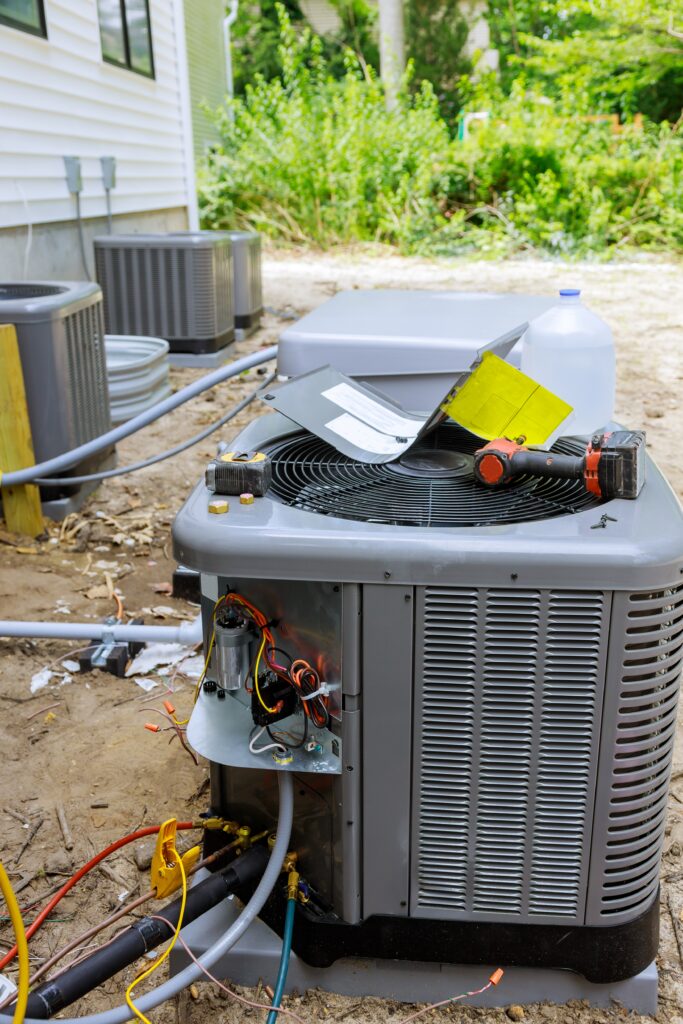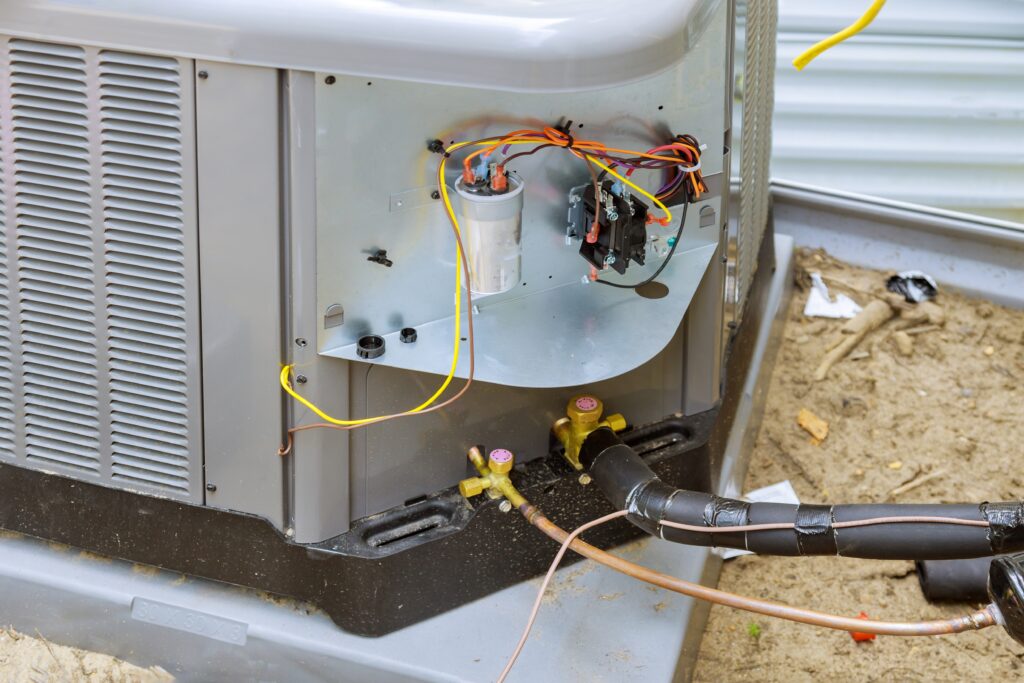Why Small HVAC Problems Demand Immediate Attention
It’s a familiar story for many homeowners. A new, faint rattle starts up when the air conditioner kicks on. A tiny pool of condensation appears near the indoor unit. A slight squeal announces the start of a heating cycle. These subtle changes in your HVAC system’s operation are incredibly easy to dismiss. In the midst of daily life, they seem like minor annoyances, background noise that can be dealt with later. However, at Wynn Creek HVAC, we’ve seen firsthand how this common tendency to procrastinate can turn a small, manageable issue into a catastrophic and costly failure.
That seemingly insignificant problem is often your system’s way of sending up a flare, signaling an underlying issue that is quietly causing damage. Ignoring these early warnings is a gamble against your home’s comfort, your wallet, and even your health. The truth is, in the world of heating and cooling, small problems do not fix themselves; they only grow in severity and expense. Addressing a minor symptom proactively is one of the most financially responsible decisions a homeowner can make, preventing a minor inconvenience from spiraling into a full-blown emergency in the middle of a Gulf Shores heatwave.
The Cascade Effect of a Refrigerant Leak
One of the most deceptive issues an air conditioning system can have is a slow refrigerant leak. Because it happens out of sight, the only initial symptom might be that the air coming from your vents isn’t quite as cold as it used to be. You might find yourself bumping the thermostat down a few extra degrees to compensate. While this seems to solve the problem temporarily, it’s actually the beginning of a destructive and expensive cycle. Refrigerant, often known by brand names like Freon, is the vital lifeblood of your air conditioner; it’s the substance that absorbs heat from inside your home and transfers it outside. When the level drops, the entire system is thrown off balance.
As the refrigerant charge decreases, your AC unit is forced to work substantially harder and run for longer periods to achieve the temperature set on your thermostat. This immediate and constant strain leads to a noticeable increase in your monthly energy bills. Your system is now consuming more power to deliver less cooling, a clear sign of profound inefficiency. But the financial drain on your utility costs is only the beginning of the problem. This sustained overexertion places immense stress on the most critical and expensive component of your entire system: the compressor.
The compressor is the powerful heart of your air conditioner, responsible for pressurizing and circulating the refrigerant. It relies on a specific charge of refrigerant to operate correctly and to help cool its own motor. When levels are low, the compressor can overheat, leading to severe mechanical strain and eventual failure. A technician from Wynn Creek HVAC can detect and repair a small refrigerant leak for a manageable cost, replenishing the system and restoring its efficiency. However, if that leak is ignored until the compressor burns out, you are facing a completely different scenario. Replacing a compressor is one of the most expensive repairs an HVAC system can require, often costing thousands of dollars. Suddenly, the decision to ignore that initial lack of cool air has resulted in a repair bill that is exponentially higher than the original, simple fix.
What Those Noises Really Mean
Your HVAC system is designed to operate with a consistent, low-level hum. When new and unfamiliar sounds interrupt that quiet operation, it’s a clear indication that something is wrong. These noises are not random; they are mechanical distress signals, each pointing to a specific type of problem that requires attention. Ignoring them is akin to turning up the radio to drown out a troubling noise from your car’s engine—the problem doesn’t go away, it just gets worse in the background.
A high-pitched squealing or screeching sound, for example, often points to a failing belt or a problem with the motor bearings in the blower or condenser fan. While replacing a worn-out belt is a straightforward and relatively inexpensive repair, allowing it to continue can lead to the belt snapping, potentially causing damage to other components. If the issue is the motor itself, the persistent strain of running without proper lubrication or with failing bearings will inevitably lead to the motor burning out completely. A dead motor means a dead system, and a system failure during the peak of summer or a cold snap guarantees an emergency replacement, which is always more disruptive and costly than a scheduled, preventative repair.
Similarly, harsh grinding or metallic scraping noises are extremely serious warnings. These sounds often indicate that internal components are rubbing against each other, such as broken motor mounts allowing parts to shift or, more critically, a problem within the sealed compressor unit. Continuing to operate the system with these sounds active is causing active, progressive damage with every cycle. What might have been a simple adjustment or minor part replacement quickly escalates into a complex and expensive system-wide failure.
The Hidden Dangers of Water: Clogged Drain Lines and Air Quality
It’s normal for your air conditioner to produce condensation as it removes humidity from your home’s air. A properly functioning system directs this water into a drain pan and safely channels it away through a condensate drain line. When you see a small puddle of water near your indoor air handler, it’s a sign that this process has been interrupted. While it might be tempting to just wipe it up, this water is a symptom of a clog in the drain line, a problem that carries consequences far beyond a damp floor.

Over time, the dark, damp environment of the drain line can become a perfect breeding ground for mold, mildew, and algae. This biological growth can accumulate and create a stubborn blockage. When the line is clogged, the condensation backs up into the drain pan and eventually overflows. This overflow can cause significant water damage to surrounding drywall, ceilings, floors, and insulation. The cost of repairing this water damage can quickly dwarf the cost of having a technician simply clear the drain line.
Furthermore, the presence of this standing water and mold growth directly impacts your home’s indoor air quality. As your HVAC system circulates air, it can pick up mold spores from the clogged line and distribute them throughout your entire home. This can trigger allergies, aggravate asthma, and create a persistent musty odor. Ignoring that small puddle doesn’t just risk property damage; it risks the health and comfort of your family. A routine maintenance visit from Wynn Creek HVAC can easily prevent this, ensuring your system’s drainage pathways are clear and your home’s air remains clean and healthy.
The lesson from these common scenarios is clear: hesitation is expensive. The true cost of ignoring a small HVAC repair is never just the price of the eventual, larger fix. It’s a cumulative total that includes weeks or months of inflated energy bills, the stress of an unexpected system breakdown, the potential for secondary damage to your property, and the inconvenience of living in an uncomfortable home. Every day a small problem is left unaddressed, the potential cost of its resolution grows.
The expert technicians at Wynn Creek HVAC are trained to diagnose and resolve these minor issues efficiently and effectively. By calling for service at the first sign of trouble—an unusual noise, a slight change in performance, or a bit of unexpected water—you are making a wise investment in the longevity and reliability of your system. We can address the root cause of the problem before it has a chance to cascade into a multi-thousand-dollar disaster. Don’t let a minor issue dictate your budget and your comfort. If you notice anything out of the ordinary with your heating and cooling system, contact Wynn Creek HVAC in Gulf Shores immediately. Let us save you money, eliminate stress, and ensure your home remains the comfortable sanctuary it should be.


